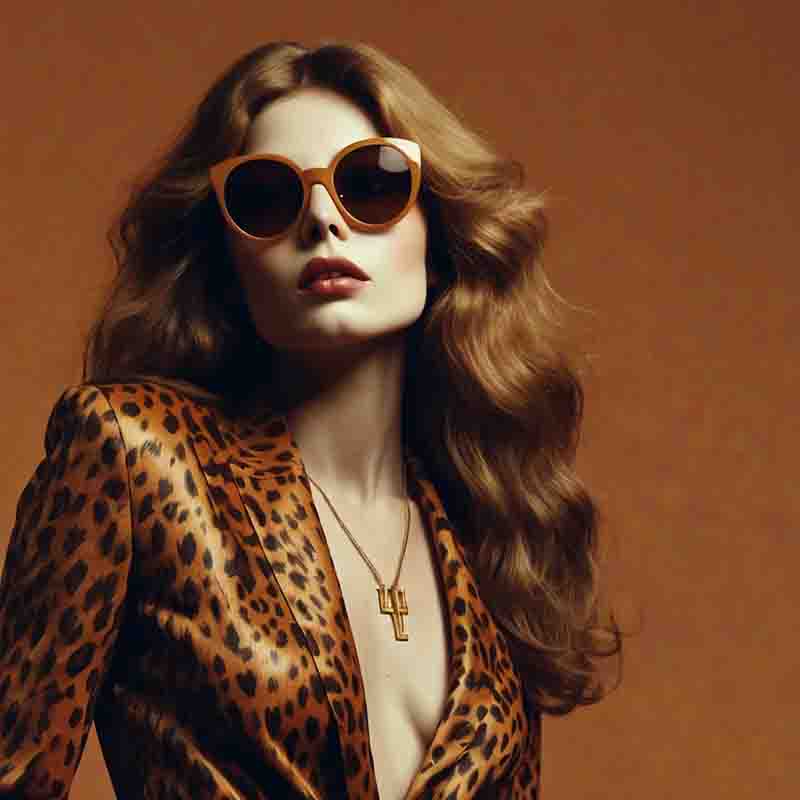From Ziggy Stardust to Electric Warriors: The History of Glam Rock
Glam Rock is a 1970s music genre known for its extravagant fashion and theatrical performances. Pioneered by artists like David Bowie and T. Rex, it blends rock and pop sounds with androgynous aesthetics. The genre influenced music, fashion, and visual arts, challenging gender norms and inspiring new creative expressions.

Key features of Glam Rock include elaborate and androgynous costumes, heavy use of makeup, and a focus on visual spectacle during live performances.
12 Facts To Know About Glam Rock
-
Origins: Glam Rock emerged in the early 1970s, primarily in the United Kingdom, as a reaction against the seriousness of mainstream rock music at the time.
-
Musical Characteristics: Glam Rock is characterized by a fusion of rock and pop elements, with catchy melodies, heavy guitar riffs, and thematic lyrics often exploring fantasy and escapism.
-
Key Artists: Iconic figures of Glam Rock include David Bowie, T. Rex (fronted by Marc Bolan), and Roxy Music (led by Bryan Ferry), who helped define the genre with their innovative music and flamboyant personas.
-
Fashion and Aesthetics: Glam Rock was known for its extravagant and androgynous fashion, featuring glitter, glam makeup, platform boots, and flamboyant costumes, challenging traditional gender norms.
-
Theatrical Performances: Glam Rock concerts were known for their dramatic and visually captivating performances, with elaborate sets, costumes, and storytelling, creating an immersive experience for audiences.
-
Cultural Impact: Glam Rock had a significant impact on broader cultural trends, influencing fashion, music, and attitudes towards gender and identity, and leaving a lasting legacy in popular culture.
-
Influence on Visual Arts: The visual aesthetics of Glam Rock inspired a new wave of creativity in fine art and design, with artists and designers drawing inspiration from its bold colors, glitter, and theatrical elements.
-
Mainstream Success: Despite its rebellious image, Glam Rock achieved mainstream success with chart-topping hits and widespread recognition, solidifying its place in music history.
-
Innovative Albums: Key albums like David Bowie's "The Rise and Fall of Ziggy Stardust and the Spiders from Mars" and T. Rex's "Electric Warrior" are considered essential to understanding the genre, pushing the boundaries of music and creativity.
-
Legacy: Glam Rock's influence can be seen in later music genres such as punk, new wave, and alternative rock, with modern artists citing it as a significant inspiration for their music and style.
-
Challenges and Controversies: Despite its popularity, Glam Rock faced criticism and controversy, with some labeling it as superficial or gimmicky, while others praised its innovation and impact.
-
Ongoing Influence: Even decades after its peak, Glam Rock continues to inspire new generations of musicians, artists, and fashion designers, demonstrating its enduring relevance and cultural significance.
Glam Rock is more than just a music genre; it was a cultural movement that redefined music, fashion, and identity.
GLAM ROCK [2024]
This Likewolf track is a unique blend of art rock, electronic music, and glam rock featuring intricate guitar work and driving rhythms.
✅ Subscribe and become a channel member:
Glam Rock, short for "glamorous rock," is a flamboyant and theatrical music genre that emerged in the early 1970s. Is a music genre known for its flamboyant style and theatrical performances.
Extravaganza of Music and Style

Glam Rock not only influenced music but also had a significant impact on fashion, challenging gender norms and inspiring a new wave of visual arts.
Glam Rock Timeline
Glam Rock emerged in the early 1970s as a flamboyant and theatrical subgenre of rock music.
Influenced by various musical styles and the desire to challenge social norms, glam rock left an undeniable mark on the music industry, fashion and pop culture, shaping the musical landscape for decades to come.
| Year | Key Events and Developments | |
|---|---|---|
| Late 1960s | Proto-Glam: Influences from early rock and roll, pop, and psychedelic music lay the groundwork for Glam Rock. | |
| Early 1970s | Emergence of Glam Rock: Artists like David Bowie, T. Rex, and Roxy Music pioneer the Glam Rock sound, blending theatricality, androgyny, and flamboyant fashion. | |
| Mid 1970s | Rise of David Bowie: Bowie's persona Ziggy Stardust becomes an iconic symbol of Glam Rock's bold and innovative spirit. Glam Rock reaches its peak popularity, with hits like "Glamorous Glue" by Slade and "Ballroom Blitz" by Sweet dominating the charts. | |
| Late 1970s | Decline of Glam Rock: Changing musical trends, including the rise of punk rock and disco, lead to the decline of Glam Rock's mainstream popularity. | |
| 1980s | Legacy and Revival: Despite its decline, Glam Rock's influence remains palpable in the music and fashion of the 1980s, with artists like Adam Ant carrying the torch. | |
| 1990s | Resurgence of Interest: Revival bands and tribute acts emerge, celebrating the legacy of Glam Rock and introducing it to new generations of music fans. | |
| Present | Influence in Contemporary Music: Elements of Glam Rock continue to influence contemporary music, fashion, and pop culture, ensuring its enduring legacy. |
The genre's emphasis on style and presentation inspired numerous artists and designers, leading to a vibrant cross-pollination between music, fashion, and art.
From Ziggy Stardust to Electric Warriors: The Evolution of Glam Rock
Glam rock stands for glitz, glamour and musical extravagance. Flamboyant fashion, theatrical performances and rousing anthems defined this style.
The glitzy world of glam rock spanned from the legendary artists of the 1970s to the fusion of rock, pop and ornate aesthetics.
The influence these extravagant sounds and styles of guitar rock had on popular culture remains an inspiration for many artists to this day.
Artists like David Bowie, Brian Ferry, Marc Bolan and Freddie Mercury established new paradigms through their glamorous and gender-bending personalities.
The music of this period was innovative and appealed to a whole new generation of young guitar based rock fans.
Glitter, Glam, and Guitars
Glam rock, also referred to as glitter rock, is a music genre that appeared in the early 1970s, primarily in the United Kingdom.
It is distinguished by its unmistakable mix of music, fashion and performance, giving rise to a unique and extravagant style that transfixed the audience of the time.
Glam rock was very much a reaction to the seriousness and introspection of the previous hippie and folk movements, providing a Glamorous and extravagant alternative.
Fusion of Music and Fashion
Glam Rock offered an escape from the reality of day-to-day life through its theatricality and larger-than-life celebrities.
It was embraced during a time of social and counter cultural change.
Influenced by a variety of musical genres, including rock, pop, and rhythm and blues, glam rock incorporated compelling melodies, memorable hooks, and high-energy rhythms into its overall sound.
Glam rock challenged traditional notions of masculinity and femininity as artists portrayed androgynous personalities and blurred the lines between sexual and gender personas.
The bold and flamboyant aesthetic characterized by glitter, spangles, platform boots, and extravagant makeup became an iconic symbol of the era.
Although its prime was rather fleeting, glam rock left a lasting footprint on the music industry and pioneered future movements and styles.
Glam rock's influence can still be detected in contemporary music and in styles of today's artists, who embrace the outspoken self-expression of glam rock in their music.
Glam rock and its fashion was the one of the harbingers of the following generation of punk rock.
Glam Rock Anthems Playlist
-
T. Rex: Get It On
-
David Bowie: Rebel Rebel
-
Queen: Bohemian Rhapsody
-
Sweet: Teenage Rampage
-
Slade: Cum On Feel the Noize
-
Gary Glitter: I'm the Leader of the Gang (I Am!)
-
Roxy Music: Let's Stick Together
-
Suzi Quatro: 48 Crash
-
David Essex: Rock On
Characterized by its extravagant costumes, androgynous personas, and catchy melodies, Glam Rock artists like David Bowie, T. Rex, and Roxy Music captivated audiences with their daring performances and chart-topping hits.
From Bowie to Bolan: Relive the Glory Days of Glam Rock
Glam Rock, also known as glitter rock or glam, is a subgenre of rock music that emerged in the early 1970s, primarily in the United Kingdom.
Through its audacious style and innovative spirit, Glam Rock remains a testament to the power of creativity and individuality.
From the fusion of music and fashion to the liberation of gender norms, glam rock epitomizes an era of fearless creativity and self-liberation.
Glam Rock: FAQ
Are you curious about music, art, technology, fashion, lifestyle, and beer?
If so, then you need to subscribe to the free Likewolf newsletter.
100% privacy. When you sign up, we'll keep you posted.
Pinnacle of Fashion
Think of it as Wearable Art
